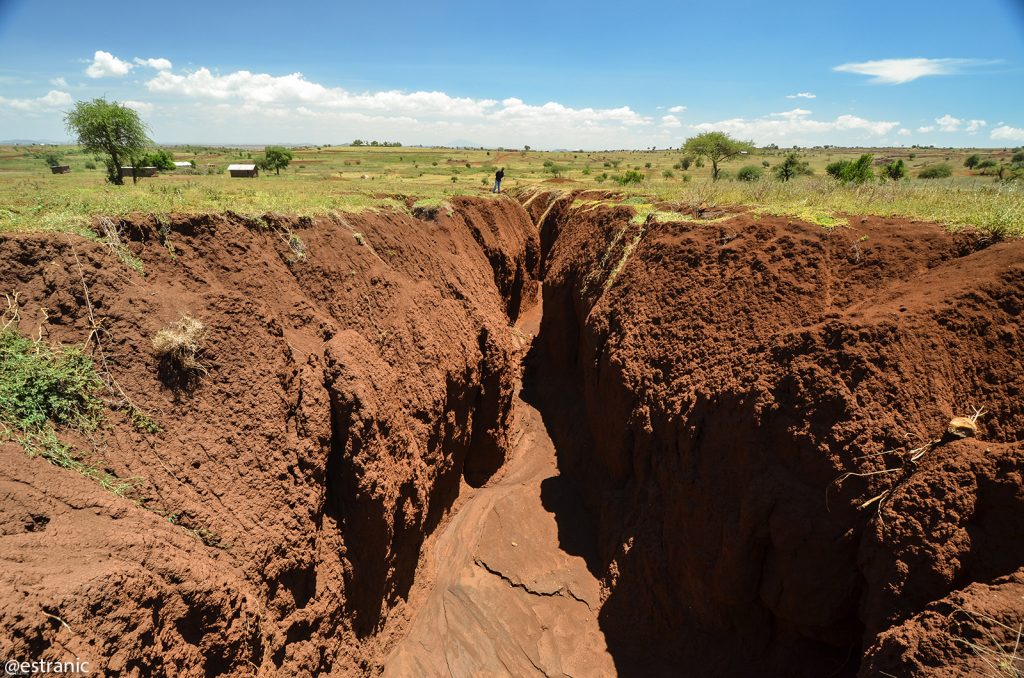Averting a "tragedy in the commons" in Maasai land: Exploring predictors of communal land degradation and developing pathways to change in Northern Tanzania

Funders: British Academy (BA)
Global Challenges Research Fund (GCRF)
Extensive land degradation presents a critical threat to society welfare in many East African countries. Vital livelihood-providing ecological systems have been brought to a tipping point by soil erosion, undermining food security and thwarting economic development of pastoralist communities. One factor that may severely exacerbate the rates of land degradation is the so called “tragedy of the commons”– a lack of concern for communally shared land and consequent use of suboptimal land management practices. In the present project we aimed to address this dilemma in one of the strongly affected countries – Tanzania.
Based on existing theory and research, we have developed a model summarising socio-psychological predictors of willingness to protect shared land. We have then collected survey data in a sample of 297 Maasai pastoralists from six communities in the Moduli District of Northern Tanzania to test the applicability of the model. The path analysis demonstrated that after a few adjustments the model fit the data well. Specifically, the extent to which stakeholders felt connected to their community (community-based identification) predicted willingness to contribute to shared land protection. This effect was mediated by action-consistent group norms. In other words, people who felt connected to their community believed that others in their village approve of land protection, and, consequently, felt empowered to take action to mitigate soil erosion. The analysis also demonstrated that most of the links in the model were stronger for male (rather than female) participants.
We then conducted a stakeholder engagement workshop to facilitate exchange between local and academic knowledge, enhance public understanding of the problem, and provide space for developing community-owned solutions. Pre- and post-measures taken at the workshop demonstrated that participation significantly increased perceived community norms around cattle management practice linked to land protection, as well as intentions to engage with this practice (e.g., using rotational grazing and decreasing herd size). Workshop participation resulted in a number of initiatives led by local champions emerging, focused on gully restoration and planting schemes to prevent soil erosion on the communal land.
The significance of this work lies in it providing the first (to our knowledge) empirical test of a socio-psychological model predicting willingness to contribute to a shared resource in an international development field context. To our knowledge, this is also the first study addressing psychological factors behind the soil erosion problem. Working with a difficult to access population, the project demonstrated the extent to which theoretically predicted relationships generalise to a field context, responding to the calls for testing theory in the field voiced in the literature on social dilemmas. Most importantly, in this project the observed relationships were put to work to achieve impact by increasing understanding of, and engagement with the problem, as well as to create a platform for co-developing solutions and motivating their adoption by community members.
Publication: Protecting the commons: Predictors of willingness to mitigate communal land degradation among Maasai pastoralists

